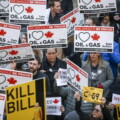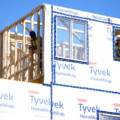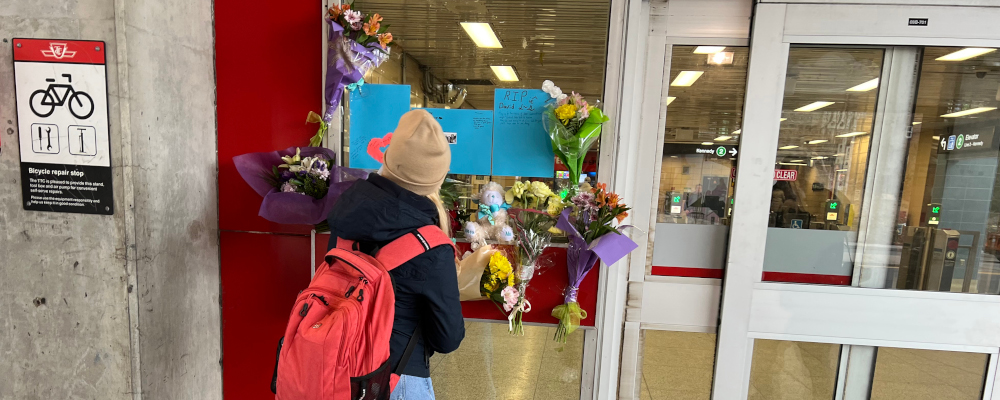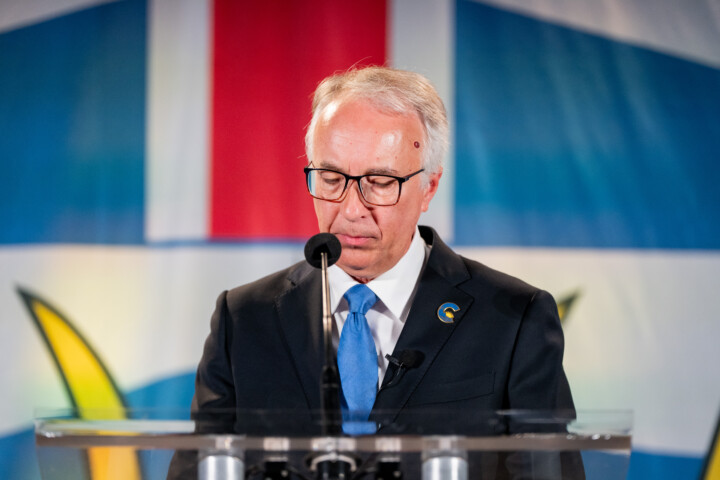Living near the Art Gallery of Ontario, I greatly enjoy walking in the neighbourhood and viewing the scene. Not long ago, standing at the corner of Phoebe Street and Spadina, I saw a down-and-out young man turn onto Phoebe and start to flail about in what looked to be a fury. He was twisting, bending, and pounding down on an imaginary person hard enough to pulverize him.
After a while he looked up and noticed me. Crossing the street, he approached and, a few metres away, said, “I am going to kill you.” There was no time to think and I replied, “Go ahead. Kill me.” He stopped for a moment, shook his head, and said, “No, that wouldn’t be good. I can’t do that.” I reacted, “Those are good ideas. You should hold on to them.” He then turned slowly, shuffled away, and left me to consider what had just happened.
A totally unexpected death threat concentrates the mind and leaves a vivid memory.
A feeling of relief came first. Being in my late eighties and in no position to fight or flee, it seemed I had talked my way out of a disaster. Then it struck me that in talking to an on-coming assailant I had acted instinctively. I didn’t know what I was doing. I had disrupted an attack by weirdly supporting the attacker’s intention, daring him to kill me, and implying he was a good person. Somehow deflating the bubble he was in, I had deflated a threat that could have been lethal. The outcome was good, but I had taken a big and unnecessary risk.
These days in Toronto we can be stabbed to death while sitting on a subway bench. In my case the attacker might have been carrying a knife. He could have taken my words as a challenge and tipped into dead-set determination to kill. More aware of possibilities such as these, I might have started shouting, making a scene, and scaring him off. But my personal inclination in dealing with opposition is to begin by negotiating, if I can. So, I spoke normally when I should also have considered trying to freak him out.
How then are Torontonians to protect themselves from random killing in public places?
The question should be answered by citizens aided by professionals. As a professional who happens to know something about security, I believe that effective responses are more likely when we identify and get at the underlying forces and factors. These are the harmful variables that produce unpredictable death, wounding, the suffering that follows, and the decline we all experience in the quality of life in this city. They are best dealt with not in instant individual reaction but in collective proaction based on public understanding and engagement.
Right now, we are in the midst of a mayoral election. Our would-be leaders ought to tell us not only what should be done to increase personal security in Toronto, but how they would build a coalition to make it happen if elected. To demonstrate a capacity for coalition-building, they should consult with constituents and get together in a public commitment to create a city panel on harms control, once the mayor is chosen.

By harms control I mean collaboration to reduce the likelihood of urban violence, its severity should it occur, and the costs of living with it. Policing plays a part but not the leading part here. Rather than take threats of violence as givens and seek to suppress them, a harms control panel should generate consensual knowledge both of the situations that gives rise to violence and of best practices in lessening them.
Is the overall situation one that has us on a slope leading to big-city massacres as in the United States? If so, how do we change direction? If not, how do we guard what works and make it better? Random violence is not the only peril or deprivation we face. But in singling it out and dealing with it we can enhance our ability as a community to deal strategically with all the rest.
We need to think as well as talk together.
Recommended for You

‘Overwhelmingly positive’: Hub Politics on how Canadians are feeling about the Carney-Smith energy alliance

There’s no end in sight for Canada’s housing crisis

Apartments are 81 percent of housing construction as more Canadians live with parents and average renter gets older

‘This is going to get very messy’: Will Canada drop religious protections from its hate speech laws?



